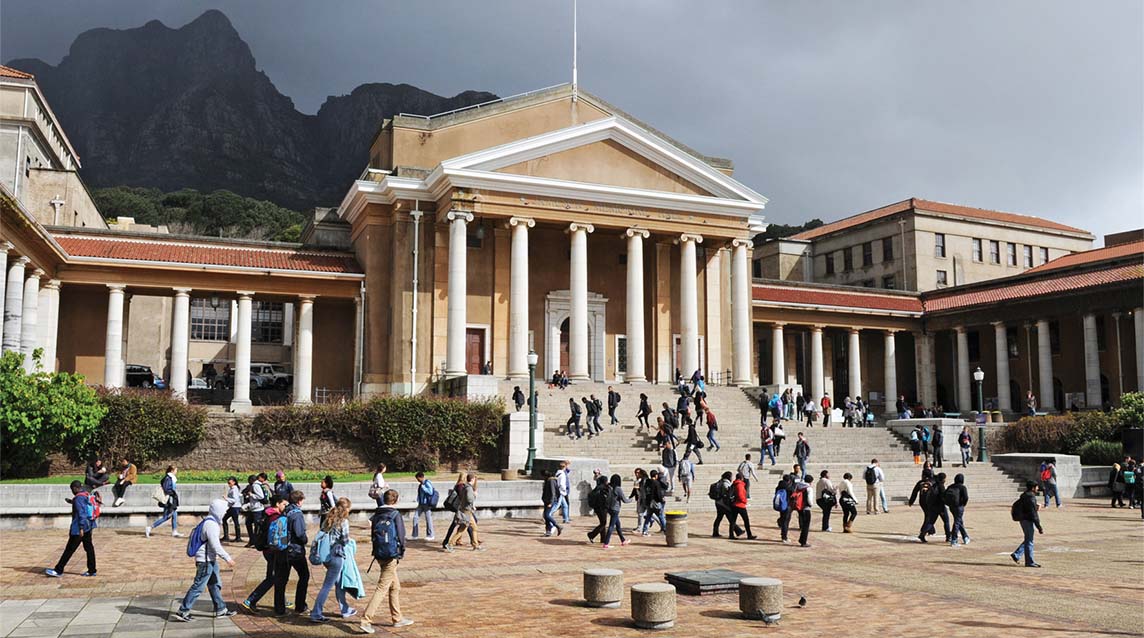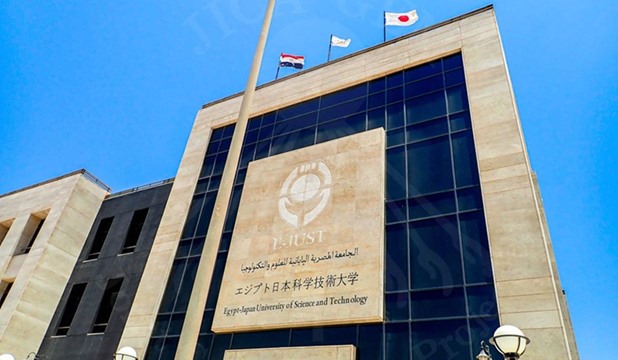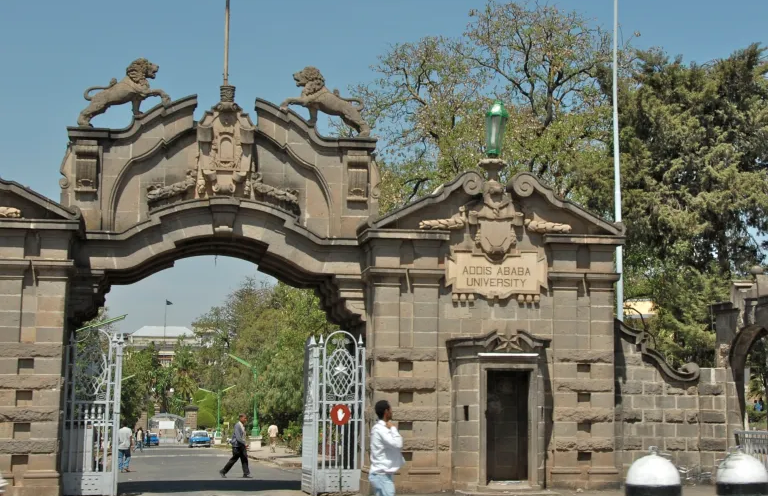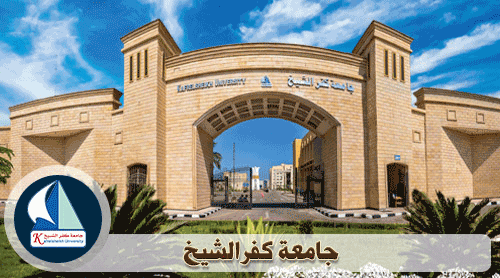Top 10 Best Universities in Africa for 2025
By ICON TEAM | Published on Apr 16, 2025
List Of Top 10 Best Universities in Africa for 2025:
The landscape of higher education in Africa is dynamic and varied, with institutions all throughout the continent achieving notable advancements in research production, academic quality, and societal influence. The top-performing African institutions are highlighted in the Times Higher Education (THE) and QS World University Rankings 2025, which also emphasize their contributions to regional development and global knowledge. Though other nations like Morocco, Ethiopia, and Nigeria also rank well, South Africa and Egypt are the top two. The top ten universities in Africa for 2025 are examined in detail below, taking into account factors including industry involvement, worldwide view, research quality, and academic reputation.
1. University of Cape Town (UCT) – South Africa:

According to THE rankings, the University of Cape Town (UCT) is the top university in Africa and is placed 171st in the world in the QS World University Rankings 2025. The oldest university in South Africa, UCT was founded in 1829 and is a world leader in both teaching and research. About 29,000 students from six faculties Commerce, Engineering & the Built Environment, Health Sciences, Humanities, Law, and Science, attend this charming university at the base of Table Mountain. With 57 departments and a robust global research network, UCT's research strengths include social justice, infectious illnesses, and climate change. The university is the only African member of the Global University Leaders Forum (GULF) and boasts an impressive employability rate, with 97% of graduates finding work within six months. Its reputation as a shining example of academic success is cemented by its dedication to inclusivity and transformation.
2. University of the Witwatersrand (Wits) – South Africa:
The University of the Witwatersrand, or Wits, is a research-intensive university located in Johannesburg that is ranked second in Africa and 267th internationally in the QS rankings. Originally established as the South African School of Mines in 1896, Wits has grown into a significant academic center with five campuses and more than 40,000 students. Engineering and the Built Environment, Commerce, Law and Management, Health Sciences, Humanities, and Science are among its faculties. Nelson Mandela is among the famous alumni of Wits, which is well-known for its contributions to social justice, mining research, and health sciences. The university's worldwide participation and employability as a graduate are reflected in its excellent rankings in international research networks and job outcomes. The metropolitan environment of Wits in Johannesburg offers students exceptional chances for industry cooperation and career advancement.
3. Stellenbosch University – South Africa:

One of the oldest universities in South Africa, Stellenbosch University was granted full university status in 1918 and is currently ranked third in Africa and 296th internationally. Over 32,000 students are enrolled in its ten colleges, which include Arts, Science, Education, and Agriculture. It is situated 50 kilometers from Cape Town in the picturesque Western Cape. Stellenbosch is well-known for its multilingual approach and provides tuition in both Afrikaans and English, with a rising focus on postgraduate English. With a QS grade of 94.8, the university is a pioneer in viticulture, oenology, and sustainable development, and it excels in worldwide research networks. It is a landmark in academia and culture because of its four campuses, active student body, and old Dutch colonial buildings. The oldest choir in South Africa, located in Stellenbosch, contributes to the city's rich history.
4. University of Johannesburg (UJ) – South Africa:

The University of Johannesburg is a relatively new university that was created in 2005 through the amalgamation of previous institutions. It is now ranked fourth in Africa and 312th internationally. UJ, which has four campuses in Johannesburg and more than 50,000 students, is a major force in research and innovation, especially in the fields of business, engineering, and health sciences. Art, Design and Architecture, Education, and Law are among its eight faculties. According to the QS rankings, UJ has a 98 in international research networks and a 96.5 in international faculty ratio, indicating extraordinarily high levels of global engagement. Strong industrial linkages are fostered by the university's urban setting, and it has received acclaim for its dedication to diversity and accessibility, including an honorary doctorate from former US President Barack Obama. The quick ascent of UJ highlights its expanding impact in African higher education.
5. Cairo University – Egypt:

Cairo institution, Egypt's top public institution, was founded in 1908 and is currently ranked fifth in Africa and 350th internationally. One of the biggest universities in the world, it is situated in Giza, across the Nile from Cairo, and has 20 faculties and almost 200,000 students. Its excellent employability scores (95.5 in employment outcomes, QS 2025) are a result of its top-ranked Faculty of Law and School of Medicine in Africa. With a focus on disciplines including engineering, medicine, and the social sciences and strong citation rates, Cairo University is a leader in research. It is a pillar of higher education in North Africa because of its worldwide collaborations and academic reputation, even if its faculty-to-student ratio is lower. Egypt's academic position abroad is improved by the university's scientific and cultural achievements.
6. Mohammed VI Polytechnic University (UM6P) – Morocco:

Mohammed VI Polytechnic University is a private, research-oriented university founded in 2016 and situated in Benguerir, Morocco. Driven by its cutting-edge facilities, including Africa's largest supercomputer at the African Supercomputing Centre, UM6P is a rising star, ranked in Africa's top 10. The university emphasizes innovation in science, engineering, and sustainable development in its programs offered by its eight faculties. UM6P's research capacities are improved by its collaborations with international organizations such as MIT, Columbia Business School, and EPFL. UM6P is positioned as a pioneer in technical advancement because of its emphasis on postgraduate and vocational programs as well as its dedication to tackling African issues. Morocco's commitment in research and higher education is reflected in the university's quick rise.
7. Egypt-Japan University of Science and Technology (E-JUST) – Egypt:

The Egypt-Japan University of Science and Technology is a research-focused university founded in 2009 with assistance from Japan, and it is ranked between 601 and 800 globally by THE. With an emphasis on engineering, technology, and applied sciences, E-JUST is based in New Borg El Arab and promotes innovation via global cooperation. Its research output is noteworthy, especially in STEM subjects, and its small student body enables individualized instruction. With 35 universities included in the THE rankings, Egypt's increasing significance in African higher education is reflected in E-JUST's ranking in the top 10. The institution is a major force in Egypt's academic scene because of its emphasis on business partnerships and cutting-edge research.
8. University of Pretoria – South Africa:

With more than 52,000 students spread across seven campuses, the University of Pretoria is one of South Africa's biggest universities and is rated among the top 10 in Africa and competitive worldwide. It was founded in 1908 and is well known for its engineering, social science, and veterinary research. One of the best business schools in Africa is the Gordon Institute of Business Science (GIBS), which is part of the university. According to Webometrics, 16 of South Africa's 26 public institutions improved their global rankings in 2025, demonstrating its strong research quality and industry engagement. The University of Pretoria's ascent to third place in South Africa, surpassing Stellenbosch, demonstrates its increasing scholarly clout and dedication to quality.
9. Addis Ababa University – Ethiopia:

Ethiopia's oldest and biggest university, Addis Ababa University was established in 1950 and is the only East African institution in the top 10. It is a center for research and teaching in the scientific sciences, social sciences, and humanities and is ranked in the top 10 by QS. The university thrives in employability and international research collaboration, with a varied student body and an emphasis on tackling regional concerns. It has made major contributions to Ethiopian development, especially in the fields of public health and agriculture, and its main campus in Addis Ababa is home to a thriving academic community. The university's admission demonstrates how East African universities are becoming more well recognized throughout the continent.
10. Kafrelsheikh University – Egypt:

A state university in Egypt called Kafrelsheikh University completes the top 10. According to the Global Green Metric ranking, it is the second most ecologically friendly university in the Arab world and is well regarded for its environmental sustainability. This top-ranked research institution, which is situated in the Nile Delta, ranks fourth in Egypt for international research citations. With 35 institutions in the THE rankings, Egypt's prominent presence in African higher education is reflected in its expanding international reputation and its emphasis on engineering, veterinary medicine, and agriculture, all of which meet regional demands. Kafrelsheikh is a unique institution because of its dedication to sustainability and high-quality research.
Comments 0